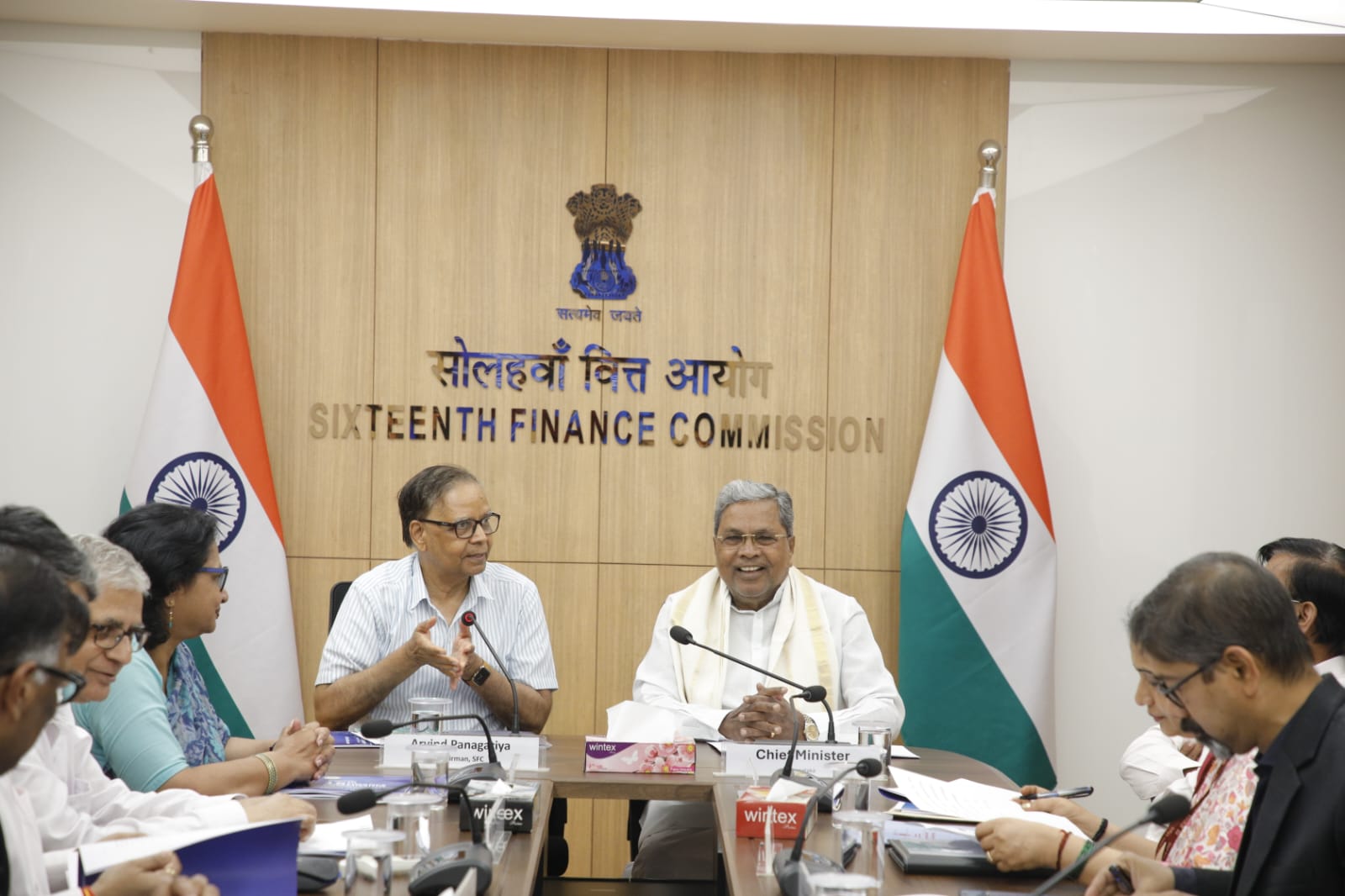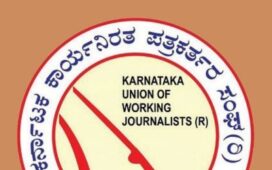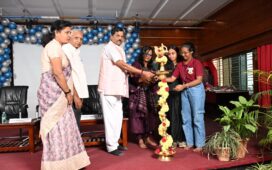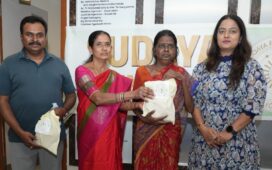The Hon’ble Chief Minister of Karnataka met with the Chairman of the 16th Finance Commission, Dr. Arvind Panagariya, and the esteemed Members of the Commission on 13th June 2025 at 3:00 PM to present the State’s concerns, expectations, and proposals regarding tax devolution and transfers to state from centre. The meeting was also attended by the Shri Basavaraja Rayareddy, Economic Advisor to the Chief Minister, along with Chief Secretary, senior officers from the Chief Minister’s Office and the Finance Department.
During the interaction, the Hon’ble CM submitted the additional memorandum, articulating the State’s vision for a fair, transparent, and growth-supportive fiscal federal structure.
Addressing the Commission the Chief Minister emphasized Karnataka’s pivotal role in India’s economic growth contributing nearly 8.7% of the national GDP with just 5% of the population and ranking second in the country in GST collections.
Despite this contribution, the Chief Minister highlighted a stark imbalance in fiscal returns: for every rupee Karnataka contributes to Union taxes, it receives only 15 paise in return. He pointed out that the reduction in Karnataka’s share under the 15th Finance Commission from 4.713% to 3.647% resulted in a cumulative loss of over ₹80,000 crore during the award period.
Issues raised in main memorandum :
In its main memorandum, Karnataka has proposed that the share of taxes devolved to states (vertical devolution) be increased to at least 50%, and that cesses and surcharges be capped at 5%. The State also recommended including Union non-tax revenues in the divisible pool.
For sharing funds among states (horizontal devolution), Kamataka suggested that each state retain about 60% of what it contributes, with 40% going to less-developed states – ensuring both growth and equity.
To make the formula fairer, Karnataka has proposed reducing the weight of the income-distance criterion and giving more weight to a state’s economic contribution, so that high-performing states are not penalized, but encouraged.
In its additional memorandum, Karnataka has called for critical reforms to make the fiscal devolution system more growth-oriented, predictable, and fair.
The State has highlighted three key issues:
the growing disparities in per-capita devolution; the flawed design of Revenue Deficit Grants, and the unpredictable nature of State-Specific Grants.
Kamataka’s per capita devolution has dropped significantly from 95% to 73% of the national average between the 14th and 15th Finance Commissions, despite increased GDP contribution.
Kamataka emphasized that while equity remains a key principle, it must be implemented in a time-bound and outcome-oriented manner, without disadvantaging states that demonstrate strong economic performance and sound fiscal management. Therefore, Karnataka has proposed that income-distance weightage to be reduced by 20% and the same be reallocated to reflect states’ fiscal contribution, as measured by their share in national GDP.
The CM questioned the effectiveness of Revenue Deficit Grants. Revenue Deficit Grants in their current form, citing persistent deficits in beneficiary states and proposing Revenue Deficit Grants redistribution through horizontal devolution using the same formula to all states.
Further, the normative assumptions underlying Revenue Deficit Grants often reflect subjective assessments of expenditure priorities. Unfortunately, these assessments tend to place welfare policies on a lower pedestal compared to salaries, pensions, and administrative expenses. Our government has been guided by Gandhiji’s philosophy of Sarvodaya, emphasizing welfare for all. By empowering lower-income households, these initiatives stimulate local demand and drive inclusive growth. Therefore, these welfare expenditures should be treated on par with, if not prioritized over, committed expenditures such as salaries, pensions, and interest payments in fiscal assessments.
Karnataka has also recommended for replacing discretionary special grants with a formula-based allocation of 0.3% of Gross Union Receipts. However, the State has reiterated its request for grants for
Bengaluru and other critical projects if the Commission continues with such provisions.
The CM sought support for Rs. 1.15 lakh crore investment to strengthen Bengaluru’s infrastructure, given its major role in Kamataka’s economy. He also stressed the need to bridge regional gaps in Kalyana
Karnataka and Malnad, which face low incomes and poor infrastructures.
In conclusion, the Chief Minister emphasized that growth and equity must coexist, and that a strong Kamataka – supported by fair fiscal devolution is essential for a strong India.
“Karnataka’s fiscal strength fuels national growth. It is time to ensure that growth is not penalized but rewarded. We urge the Commission to adopt a balanced, forward-looking approach to devolution.”
























